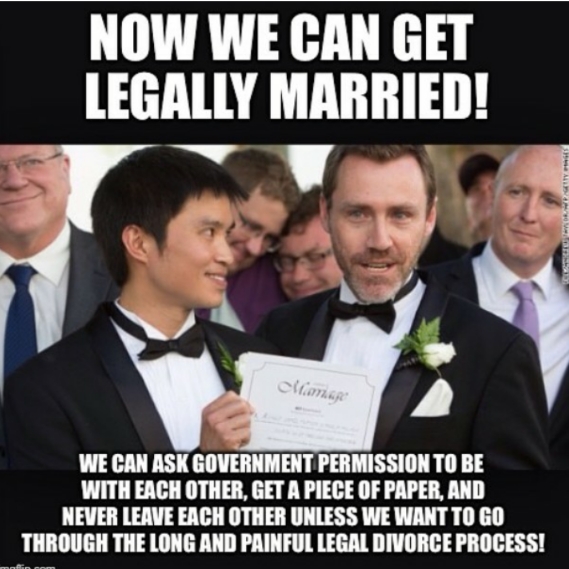MalTalm
Formerly known as Talm
- Joined
- Aug 12, 2008
- Messages
- 2,725
- Reaction score
- 3,732
- Points
- 113
I think the decision itself was horrible -- this is not an issue that should have been decided by the Supreme Court, but rather by voters in each state. All the flowery language in the Court's opinion just illustrates that the Court was acting as a policy-making legislature rather than a law-adjudicating court.
Kind of a funny contrast with yesterday's Obamacare decision. There, you had unambiguous language that said one thing, but the Court decided that the intent of those who drafted it should trump that language.
Yet here, even though nobody involved in the drafting/ratification of the 14th Amendment (and nobody for at least 100 years after that) intended it to force states to recognize gay marriage, their intent was completely ignored in favor of those 5 justices' preferred modern view of social policy.
Only consolation is that it's fun to see Robert's so outraged at the Court going beyond the text of the relevant legal authority.
The Supreme Court has been the most powerful branch (by far) in our government since the early 1800's. They've used legal interpretation to create an array of laws for this country, this is no different. In a sense, I agree with you in principle: The Supreme Court of today certainly isn't what was intended by the constitution, and the justices have rarely been shy about wielding that power given the chance. That said, when you have the political gridlock that prevents forward momentum on issues such as this despite a large national consensus, it's reassuring to see there's at least one way to crash through the bullshit and just get something done.
All in all, a good day for America, though it's unfortunate we needed to wait on the Court to bend their power to get it done rather than our representative government actually try and represent the American people.


